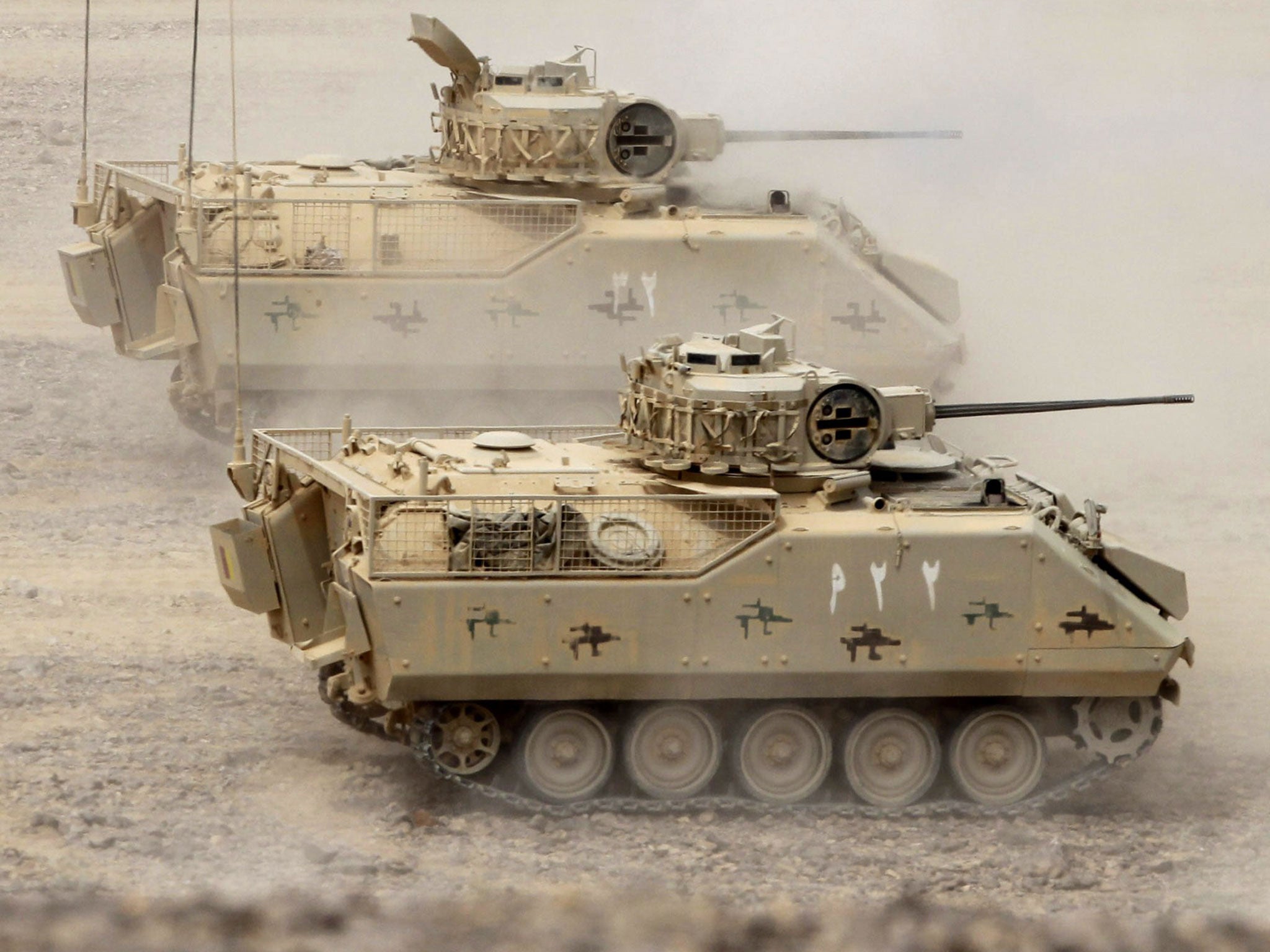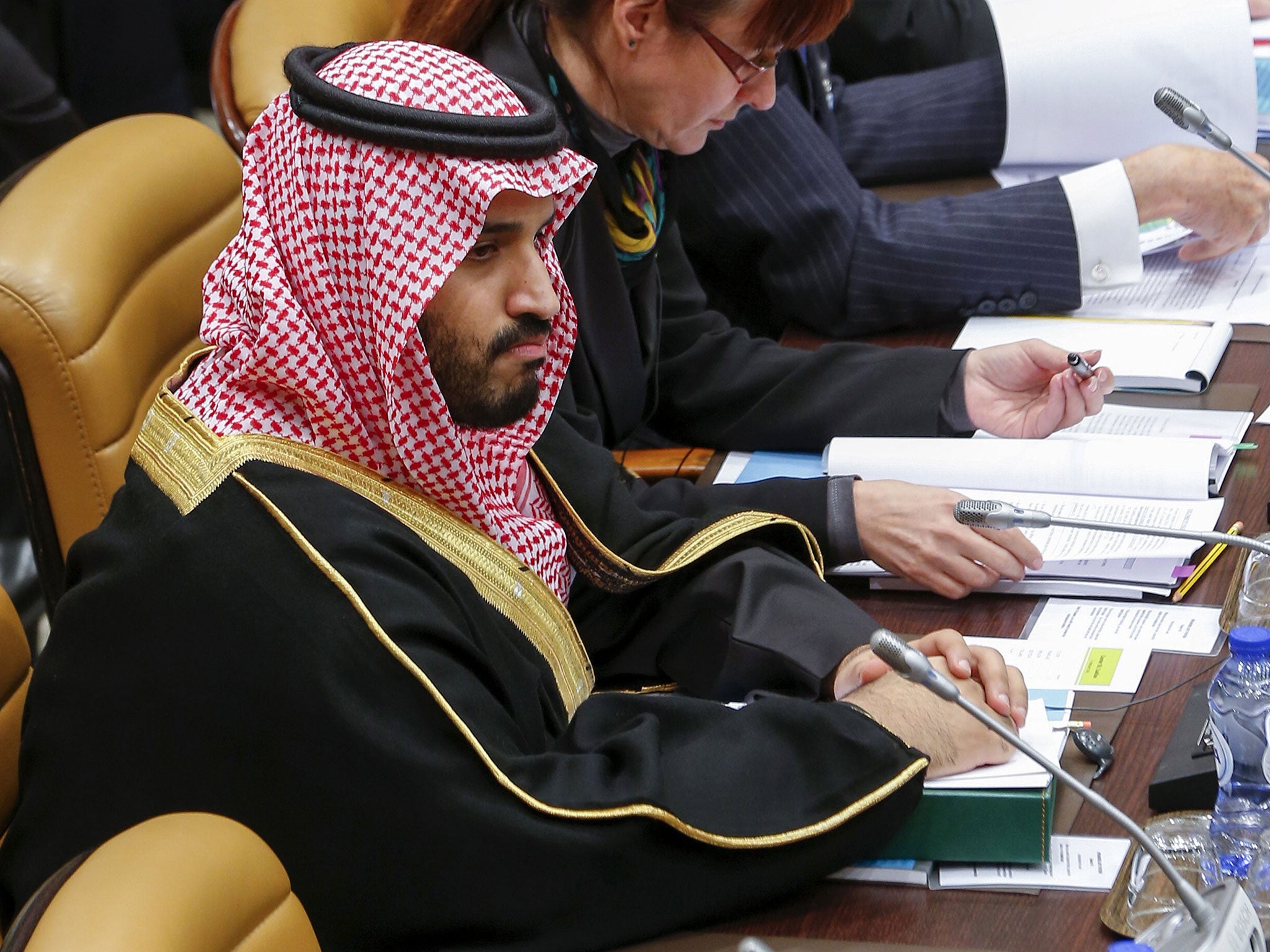Saudi Arabian troops deployed to Turkey: A boost for peace in Syria or a slide into even bloodier violence?
The movement of Saudi forces to a Turkish military base has prompted speculation of an imminent ground invasion. But what are they really doing in the region? Kim Sengupta reports

The reports that Saudi Arabia is sending troops and aircraft to Turkey for a possible ground mission in Syria adds a highly combustible element to a fine balance between fragile hopes of a ceasefire and the slide into a conflict even bloodier than the one taking place now.
Confirmation of the Saudi deployment came from the Turkish foreign minister, Mevlut Cavusoglu, and shows a calibrated policy by two states, who consider themselves to be heavyweights and who are both currently badly losing out in Syria.
Mr Cavusoglu said that Turkey and Saudi Arabia have "always emphasised the need for an extensive result-oriented strategy in the fight against the Daesh (Isis) terrorist group…. Turkey and Saudi Arabia may launch an operation from the land."
But this is less to do with Isis and much more with the fact that Sunni rebels, backed by Saudis and the Turks, are rapidly losing ground to the forces of Bashar al-Assad, supported by a ferocious Russian air onslaught, Iranian ‘volunteers’ and fighters from the Lebanese Hezbollah. There is added exasperation, from the Turkish point of view, that some of this territory is being taken over by Kurdish forces.
The Incerlik gambit comes against a backdrop of a convoluted and confusing scenario, not just on the ground in Syria but in the maneuvers going on over the conflict elsewhere.
The Saudi defence minister and heir apparent to the throne, Prince Mohammed bin Salman, presented his country’s military plans in Syria to a summit of the US-led anti-Isis coalition at the Nato headquarters in Brussels last Thursday. He did not, according to diplomatic sources, mention sending troops and aircraft to Turkey to the US defence secretary Ash Carter and his fellow Western ministers.

As those talks finished there was an announcement, at another international meeting on Syria, in Munich, by US Secretary of State, John Kerry, and the Russian foreign minister, Sergei Lavrov, that there will be a ceasefire in a week. Within, 24 hours however, President Assad declared that he was preparing to reconquer all of Syria.
Neither Riyadh nor Ankara appear to believe peace will break out anytime soon and are frantically trying to redress the balance on the ground with the projected sending in of troops.
This will bring inherent risks. The Sunni Gulf states have long been fighting proxy wars with their bitter Shia enemies, Iran, with the vicious conflict in Yemen the latest in the series. A force led by the Saudis, with likely contributions from the United Arab Emirates and Bahrain, will, in Syria, find themselves in the same battlespace for the first time as the Iranians and Shia militias.
The Turks will come up against the YPG, the Syrian Kurdish group allied to the Turkish Kurds of the PKK, and enemies of Ankara. The YPG, however, are the best fighters the Americans have found against Isis and have provided air cover for their operations. The Turkish President, Recep Tayyip Erdogan, has lashed the Americans for this, accusing Washington of helping to create a "sea of blood". To add to Ankara’s fury, the Russians, too, are now building close ties with the Kurds.
The sending of Saudi aircraft and troops to Turkey does not mean an invasion is imminent. But one cannot rule out Riyadh and Ankara, feeling increasingly desperate, taking action which will add to the witch’s brew which is now Syria.
Join our commenting forum
Join thought-provoking conversations, follow other Independent readers and see their replies
Comments